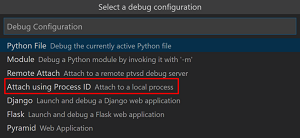News
Visual Studio Code Gets New Python Debugger
The March 2020 update to Microsoft's wildly popular Python extension for Visual Studio Code focused on improving quality via bug fixes, but it did introduce a new debugger.
Python language functionality is provided to vS Code through the Python extension for Visual Studio Code, far and away the most popular offering in the editor's marketplace with more than 17.5 million installations. It serves up language goodies like IntelliSense, linting, debugging, code navigation, code formatting, Jupyter notebook support, refactoring, variable explorer, test explorer, snippets, and so on.
Microsoft years ago went "all in" on Python, and the support effort has resulted in VS Code gaining Python developer mind share.
Updated monthly, the tool's latest iteration introduces the new debugger, called debugpy.
"We're excited to announce that in this release we're including a new debugger, debugpy. The debugger team has put a lot of effort into making it a faster and even more reliable Python debugger," said Luciana de Melo e Abud, program manager, Python extension in Visual Studio Code, in a March 19 blog post.
 [Click on image for larger view.] Attaching to Local Process (source: Microsoft).
[Click on image for larger view.] Attaching to Local Process (source: Microsoft).
Also, a new configuration experience simplifies the process of attaching the debugger to local processes, which can be problematic if a developer doesn't have control over the application that spawned the process.
For more information about the new debugger, including how to transition from ptvsd (the previous debugger), API changes, CLI references, allowed debug configurations and so on, a debugpy wiki page is available.
Other changes and improvements ranged from "Remove extra lines at the end of the file when formatting with Black" to "Show quickfixes for launch.json."
Development of the VS Code Python extension is carried out on GitHub.
About the Author
David Ramel is an editor and writer at Converge 360.